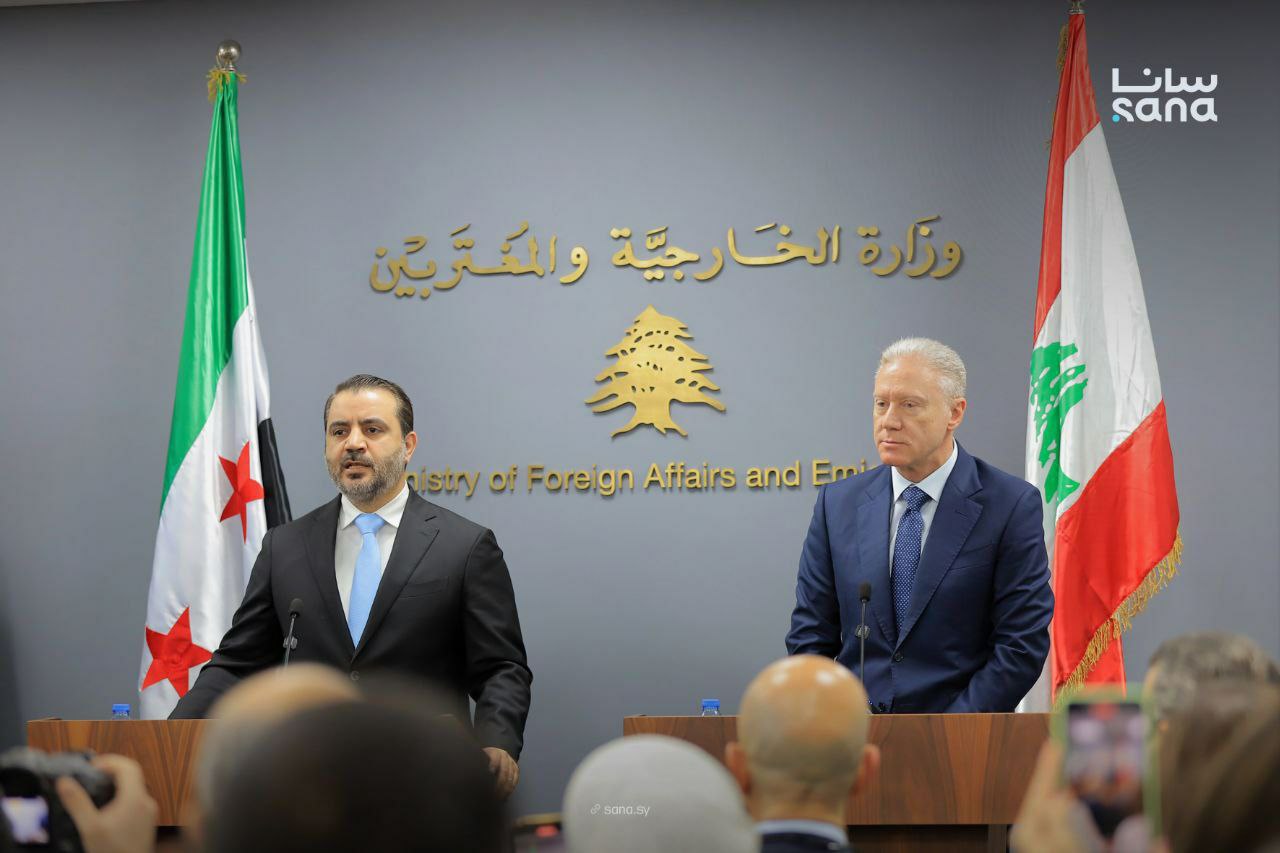 Syrian Foreign Minister Asaad al-Shaibani arrived in Beirut on Friday, October 10, marking the first visit by a Syrian foreign minister to Lebanon in 15 years and the first since Syria’s liberation. Leading a high-level delegation that included Justice Minister Mazhar al-Wais, Intelligence Chief Hassan Salama, and senior officials, Shaibani’s visit signals a renewed era of cooperation and equality between the two neighboring states.
Syrian Foreign Minister Asaad al-Shaibani arrived in Beirut on Friday, October 10, marking the first visit by a Syrian foreign minister to Lebanon in 15 years and the first since Syria’s liberation. Leading a high-level delegation that included Justice Minister Mazhar al-Wais, Intelligence Chief Hassan Salama, and senior officials, Shaibani’s visit signals a renewed era of cooperation and equality between the two neighboring states.
Turning the Page on a Complicated Past
Speaking alongside Lebanese Foreign Minister Yusuf Raji, Shaibani said his visit “reflects the direction of the new Syria, which Lebanon has great respect for.” He emphasized that Syria seeks to “restore relations on the basis of mutual interests and good neighborliness” and to “overcome the mistakes of the past, of which we too have been the victims.”
The visit comes just ten months after the fall of the regime of Bashar al-Assad. Since then, Damascus has sought to rebuild diplomatic ties regionally on what Shaibani called “the foundations of cooperation and mutual respect.”
Lebanon’s foreign minister welcomed the delegation warmly, describing the occasion as “historic” and the beginning of “a new path of peace, safety, cooperation and development.”
Justice and Humanity in Detainee Cases
Among the most urgent matters discussed was the fate of more than 2,000 Syrian detainees held in Lebanese prisons. Many, according to Syrian officials, face politically motivated charges or were caught in flawed judicial processes during years of regional unrest.
Syria stressed it has demonstrated both mercy and respect for the law, referring to Damascus’ release of all Lebanese detainees following the country’s liberation expressing hopes in reciprocal justice and humanity.
Committees formed last month have begun reviewing detainee files and locating missing Lebanese in Syria. Lebanese authorities, for their part, affirmed their commitment to applying the law fairly while continuing cooperation through the new joint legal framework.
Syrian representatives acknowledged the anguish of Lebanese families still searching for missing relatives—stressing that Syria knows the pain of the missing. Every lost person—Syrian or Lebanese—is a wound that can only heal through truth and reconciliation. Damascus pledged to handle all such cases with “transparency, empathy, and seriousness.”
Refugees, Borders, and Sovereignty
Refugee repatriation remains a central challenge. While recognizing Lebanon’s heavy burden, Syria reiterated that returns must be “safe, voluntary, and dignified,” in accordance with international law. While some headway has been made, the two countries are developing a joint mechanism to better coordinate refugee returns in an organized, lawful manner.
Border demarcation was also a priority. The 375-kilometer Syrian-Lebanese frontier has long suffered from smuggling and disorder. “That era is over,” a Syrian diplomatic source told Levant24. “Syria is determined to secure its borders and protect the sovereignty of both nations.”
A Relationship Rebuilt on Respect and Trust
Both ministers confirmed that future coordination will occur through diplomatic channels after Syria suspended the long-dormant Syrian-Lebanese Supreme Council. The visit also aims to address the recovery of Syrian assets and funds held in Lebanon.
Damascus intends to discuss the issue of military equipment and billions of dollars in frozen Syrian deposits in Lebanese banks. Observers note that Lebanon’s financial crisis cannot justify withholding property that belongs to the Syrian people.
As the delegation continues its visit, the message from Damascus remains clear: the new Syria seeks partnership, not dominance. The transitional government has demonstrated great respect and appreciation for Lebanon. It remains that only through mutual respect, truth, and cooperation can both nations achieve lasting stability.








